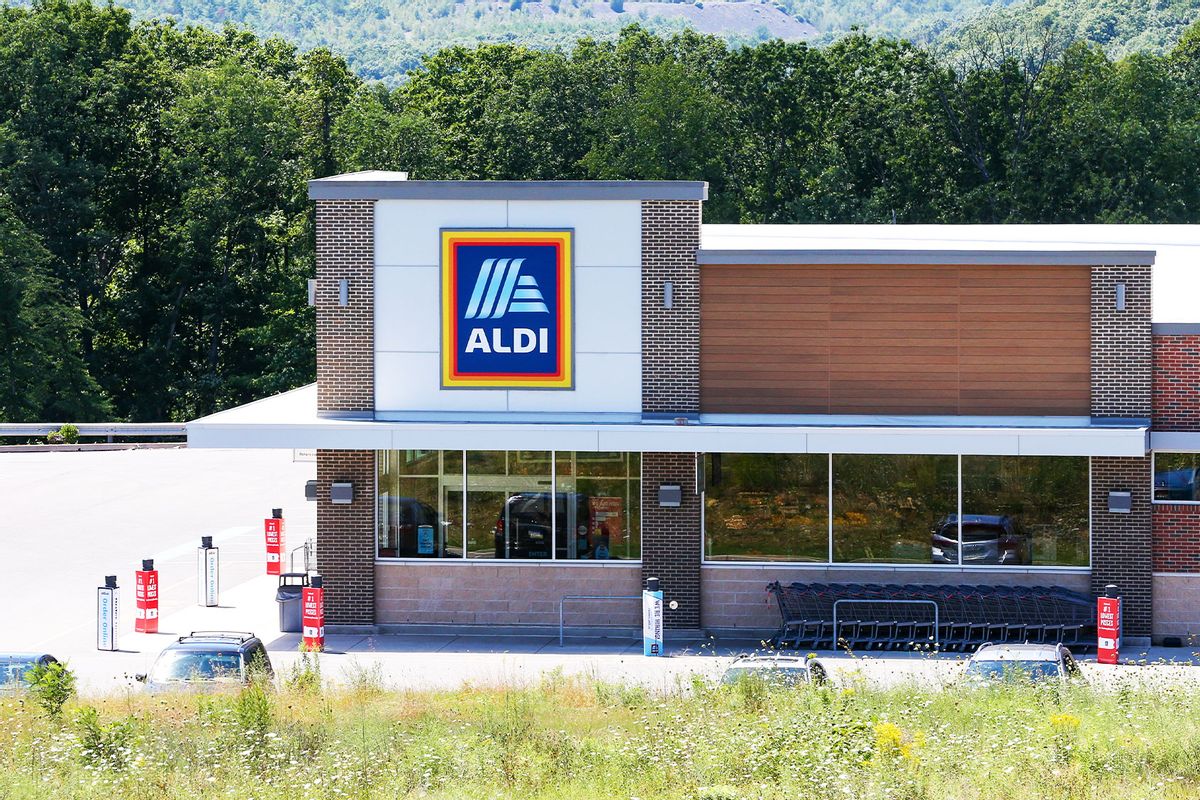If you've ever stepped foot in an Aldi, you know that the multinational family-owned discount supermarket chain (it's a mouthful!) touts a wide selection of goods, from must-have budget buys to household essentials. The grocery chain also flaunts a cult-following, particularly amongst millenials who recently elected Aldi as their top-choice market.
Nowadays, it seems like there's an Aldi at every corner of town. But surprisingly, the grocery chain didn't originate in the United States but rather, in Germany. Per Aldi, its very first store opened in Germany in 1961 before the chain expanded to the United States 15 years later.
So, how exactly did Aldi make its way from Europe to the States? According to a report from Winsight Grocery Business, "Aldi expanded to the United States from Essen, Germany, via an undisclosed investment in Benner Tea Co., a Burlington, Iowa grocer with origins in the early part of the century." Located in the Kmart Plaza in Iowa City, Iowa, the store was originally a Giant Food store before it reopened as an Aldi in late March of 1976.
At the time, discount supermarkets were on the rise as the country suffered from high unemployment and high inflation due to a 16-month-long recession. Aldi, however, was not like most stores because it featured a discount scheme that was unfamiliar to most consumers. Early advertisements reminded shoppers to bring their own bags for carrying groceries and specified that products were available for purchase in their original cartons:
"We have no bags. Bring your own box or bag — we pass these supply savings to you," read one advertisement. Another simply said, "We have no fancy shelving. We sell right from the original carton — less handling means savings for you."
The Iowa City Aldi carried only 450 items and listed each individual price on paper sheets that customers could carry as they shopped. There was also no refrigeration equipment or freezers, so the only perishable items available were onions, potatoes, bread and margarine.
Want more great food writing and recipes? Subscribe to Salon Food's newsletter, The Bite.
"The treasure hunt of the Aldi Finds section, coin-released shopping carts and payment by credit card were also still in the future, but the idea that U.S. consumers would shop for private label foods in a no-frills environment if only the price and quality were there had been established in a way that no store had before or since quite as successfully," the report further explained.
Today, Aldi has more than 2,000 stores across 36 states in the United States with over 25,000 employees.
If you're looking to close out this month with new goodies from Aldi, be sure to check out Aldi's best February buys for Super Bowl, Valentine's Day and sweater weather.



Shares